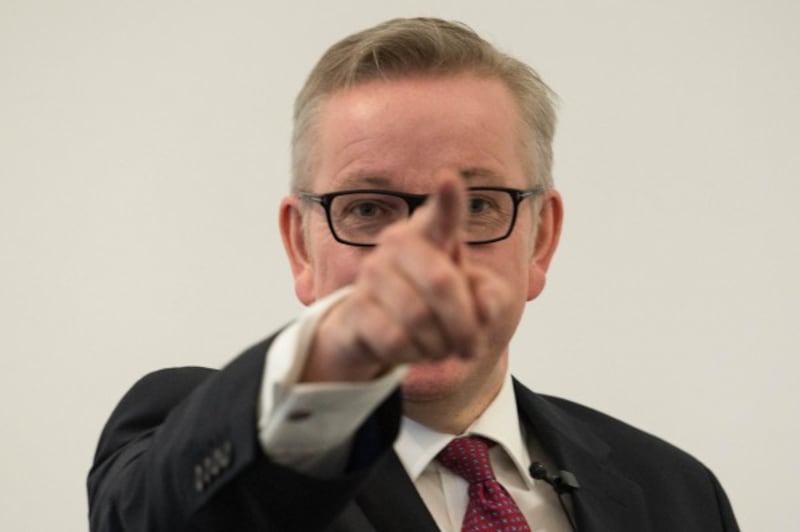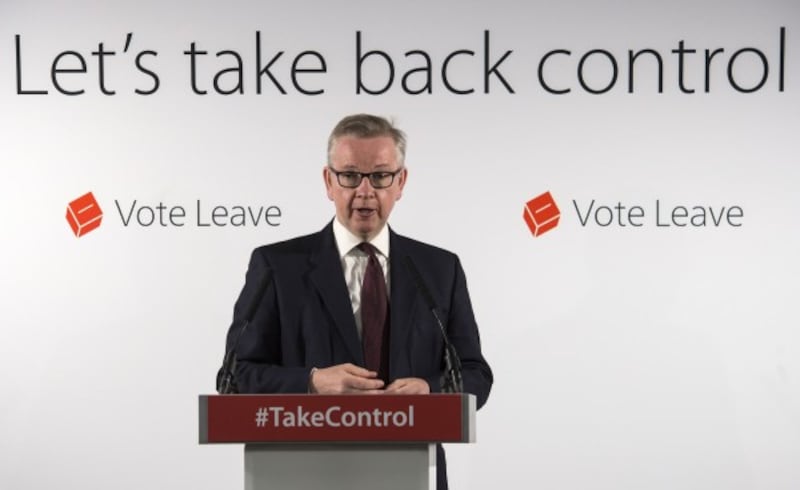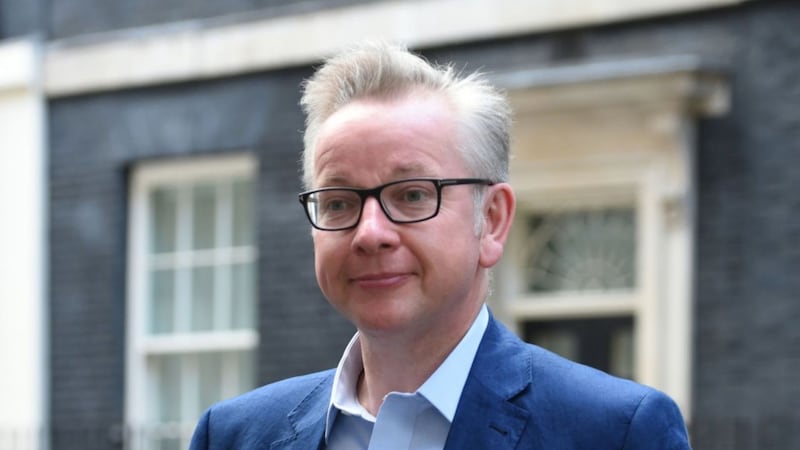Michael Gove has returned from the cold and been appointed as Theresa May’s Environment Secretary.
The former justice secretary was dropped from the Cabinet when May became Prime Minister in 2016, but finds himself back on the frontbenches following the latest reshuffle.
Gove will oversee the Department for Environment, Food and Rural Affairs – a role that includes farming, flooding and safeguarding of the environment.
But environmentalists are a bit thrown by the appointment.
GOVE? GOVE??? GOOOOOOVE????
— Jules Howard (@juleslhoward) June 11, 2017
May throws a bone to DUP dogs in the form of climate sceptic environment minister. https://t.co/pvcmgm9z6D
— Andrew Bell (@aw_bell) June 11, 2017
Questions have been raised about his voting record on the environmentDuring his time as an MP, Gove has generally voted against measures to prevent climate change, according to They Work For You. In 2008, as secretary of state for children, Gove was absent during the second and third readings of the Climate Change Bill, and last year voted not to reduce the permitted carbon dioxide rate of new homes. In total, between 2008 and 2016, he voted for measures to prevent climate change five times, against 12 times, and was absent 11 times.

Gove has also twice voted in favour of selling England’s state owned forests, as well as culling badgers. Green Party co-leader Caroline Lucas is not impressed.
Beggars belief. One look at Gove’s voting record shows him unfit for this job: https://t.co/IIzaJRek8I https://t.co/TzIxt4duNp
— Caroline Lucas (@CarolineLucas) June 12, 2017
Gove’s treatment of climate change on the school curriculum was controversialDuring his time as education secretary, Gove made plans to drop climate change from the geography curriculum, according to the Guardian, as part of a drive to slim the curriculum down.The newspaper reported that the plans would see climate change moved to the science curriculum, but said there were fears this would downgrade the subject. The decision to abandon the plans was claimed as a victory for Ed Davey, the then Lib Dem energy and climate change secretary – a role which has remained unfilled since Amber Rudd became Home Secretary in 2016. He hoped Brexit would mean the end of some wildlife protection regulation

Gove was a key figure in the Brexit campaign, and took aim at EU rules following the referendum which he said prevented homes being built. “I am very, very keen – I may be odd in this respect as Conservative MP – on having more homes built in my constituency. It’s a social and economic good. But homes built in my constituency are governed by the Habitats Directive,” he said in March, in quotes reported by the Independent. “The Habitats Directive holds that if you build a home within five kilometres of a particular type of terrain, heathland, then you have to allocate, at the same time, something called suitable alternative natural green space to offset the environmental impact.”He added: “As a result my constituents, and perhaps your children find homes more expensive and mobility in this country impeded.”But he has spoken of the need for conservation
3 yrs ago @michaelgove gave this brilliant speech on the environment. As our new Env Sec, it's worth reading: https://t.co/UKnDR2DVGf
— Zac Goldsmith (@ZacGoldsmith) June 11, 2017
In a 2014 Westminster speech, Gove took questions from the floor on his climate stance, a topic he said had many feel had been “colonised” by the left, saying Conservatives want to see “natural beauty respected and observed and enhanced”. He said: “It seems to me unarguable that man has an impact on the climate. It seems to me unarguable that climate change can have a devastating and damaging impact on societies and economies that are even less developed. “And therefore it seems to me unarguable that we should seek first to lessen the impact that man might have on the climate, and secondly invest appropriately in measures to mitigate and protect individuals and societies from the impact of climate change.”In the same speech, Gove said his “level of knowledge and technical expertise” could be a barrier to helping those on the political right lead the climate change argument.








